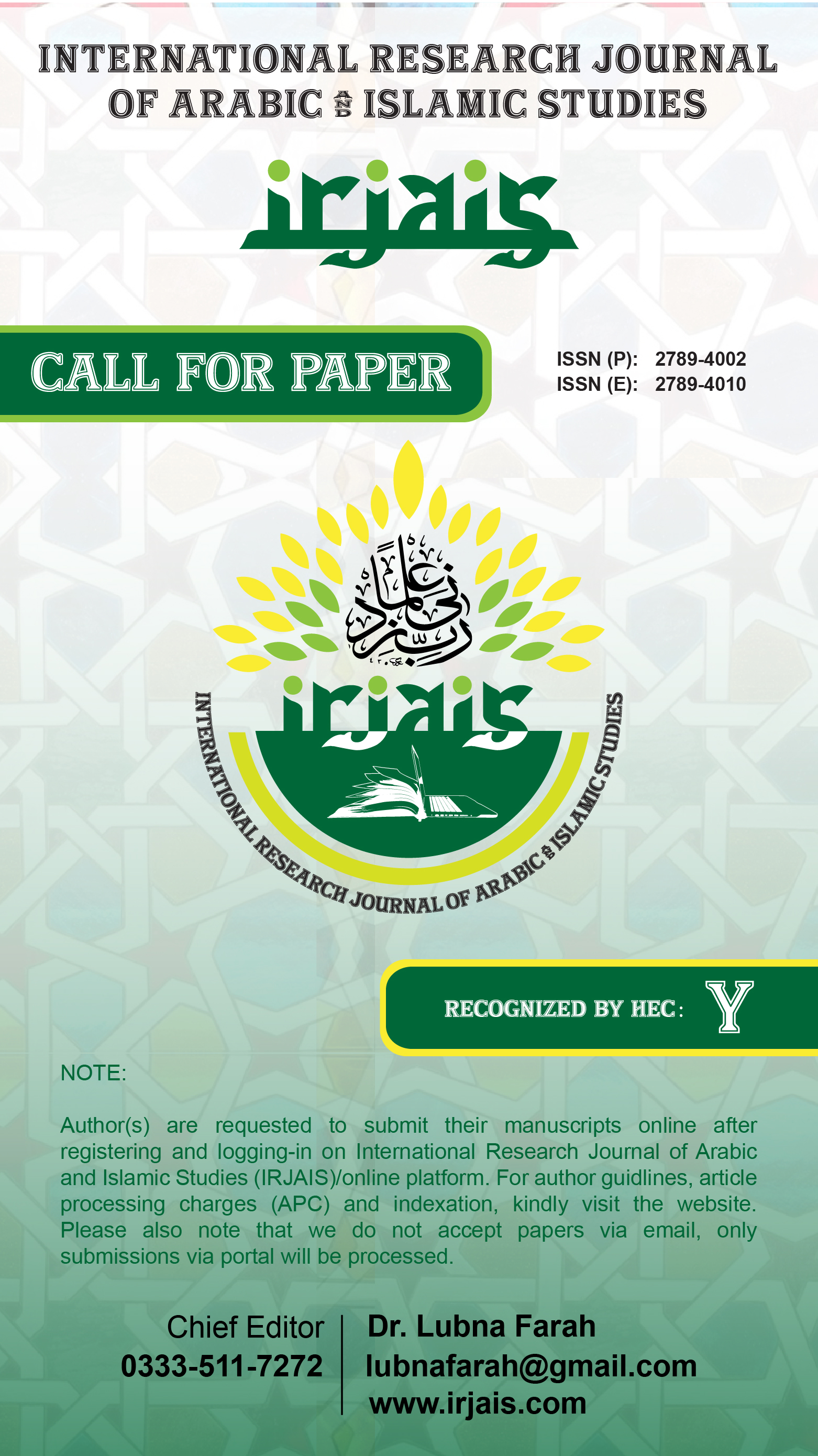اردو تفسیری ادب میں اختصار فی التفسیر: امتیازات، اقسام، اسباب، اصول، فوائد اور نقائص کا جامع جائزہ
A Comprehensive Review of Conciseness in Tafsir in Urdu Exegetical Literature: Distinctions, Types, Causes, Principles, Benefits, and Drawbacks
Keywords:
conciseness, Tafsir, Urdu exegesis, principles, benefitsAbstract
This paper delves into the concept of conciseness (Ikhtisar) in the realm of Tafsir (exegesis) within Urdu exegetical literature. Conciseness in Tafsir refers to the practice of summarizing and simplifying complex exegeses to make them more accessible to readers. This tradition encompasses various forms such as summarizing hadiths within Tafsir books, abbreviating Quranic verses, and condensing certain phrases and names. The paper distinguishes between conciseness and related concepts like abridgment (Takhlees), refinement (Tahzib), selection (Intiqaa), and extraction (Istisfaa). Each term has its unique nuances and application within the exegetical tradition. The study highlights the historical and theoretical background of conciseness in Tafsir, outlining its different manifestations and the roles of those who engage in this practice. Key principles and rules governing conciseness in Tafsir are discussed, emphasizing the religious, cultural, and social reasons behind this practice. The benefits of conciseness, such as enhanced comprehension and easier dissemination of knowledge, are balanced against potential drawbacks, including the risk of oversimplification and loss of nuanced understanding. The paper also explores the views of scholars who support or oppose conciseness in Tafsir, providing a comprehensive overview of the debate. This examination is crucial for understanding the broader implications of conciseness in religious scholarship and its impact on the interpretation and transmission of Islamic teachings. By analyzing the causes, principles, benefits, and drawbacks of conciseness in Tafsir, this paper offers a thorough understanding of its significance in Urdu exegetical literature. It underscores the importance of maintaining a balance between accessibility and preserving the depth of religious texts.





